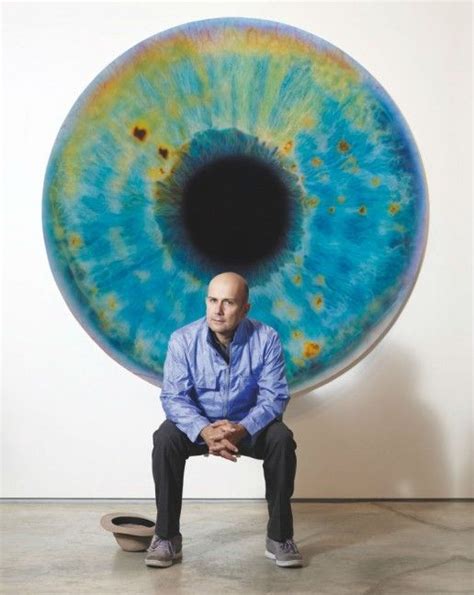A Quote by Robert Lanza
Our science fails to recognize those special properties of life that make it fundamental to material reality. This view of the world - biocentrism - revolves around the way a subjective experience, which we call consciousness, relates to a physical process. It is a vast mystery and one that I have pursued my entire life.
Related Quotes
We're not in the physical world. The physical world is in us. We create the physical world when we perceive it, when we observe it. And also we create this experience in our imagination. And when I say "we," I don't mean the physical body or the brain, but a deeper domain of consciousness which conceives, governs, constructs and actually becomes everything that we call physical reality.
And when you realize that you form the events of your life in the same way, you will learn to take hold of your entire consciousness in whatever aspect it shows itself in this life. Through all of this you must realize that you are not powerless. Remember, also, that this life is a dimension of experience and reality even if it is, in contrast, a dream in a higher level of reality in which you have your larger consciousness.
The burgeoning field of computer science has shifted our view of the physical world from that of a collection of interacting material particles to one of a seething network of information. In this way of looking at nature, the laws of physics are a form of software, or algorithm, while the material world-the hardware-plays the role of a gigantic computer.
The problem is one of opposition between subjective and objective points of view. There is a tendency to seek an objective account of everything before admitting its reality. But often what appears to a more subjective point of view cannot be accounted for in this way. So either the objective conception of the world is incomplete, or the subjective involves illusions that should be rejected.
I agree that science is the best way of understanding the natural world, and therefore that we have reason to believe what the best science tells us about the objects in that world and the relations between them. But this does not mean that the natural world is the only thing we can have true beliefs about. The status of material objects as things that are "real" is a matter of their having physical properties, such as weight, solidity, and spatio-temporal location. In order to be real, such things need not have, in addition to these properties, some further kind of metaphysical existence.
For this knowledge of right living, we have sought a new name... . As theology is the science of religious life, and biology the science of [physical] life ... so let Oekology be henceforth the science of [our] normal lives ... the worthiest of all the applied sciences which teaches the principles on which to found... healthy... and happy life.
I think there are times when human beings open our psychic field: when they're in love, when they're with another person that they resonate with, when they're having a wonderful experience of any kind. We feel the essence of life in a different way that allows us to experience the presence of God as, I would call it, a functioning, physical reality and not just a mental construct or conceptualization.
There is a spiritual capacity in carbon as there is a carbon component functioning in our highest spiritual experience. If some scientists consider that all this is merely a material process, then what they call matter, I call mind, soul, spirit, or consciousness. Possibly it is a question of terminology, since scientists too on occasion use terms that express awe and mystery. Most often, perhaps, they use the expression that some of the natural forms they encounter seem to be "telling them something."
The discoveries of the last couple decades are showing that properties of a self do actually inhere in matter, that matter seems to have properties of self-organization and life, even intelligence, consciousness. I can't say that science has proved these things, but it at least suggests the possibility. As we re-invest the world with sacredness, "spiritual" comes to mean something very different. If only a human being has these qualities, then spiritual work is inner. It's all about your own consciousness.
Get out into the sunlight-out where everything is-with a vibration that is so dominant that those who annoy you, those who don't agree with you, those who make your life feel uncomfortable, don't come into your experience, because your vibration-through your practice-has become so clear, so pure, so clean, so in keeping with what you want, that the world that revolves around you just feels like that. That's what you planned.
A human life has seasons much as the earth has seasons, each time with its own particular beauty and power. And gift. By focusing on springtime and summer, we have turned the natural process of life into a process of loss rather than a process of celebration and appreciation. Life is neither linear nor stagnant. It is movement from mystery to mystery. Just as a year includes autumn and winter, life includes death, not as an opposite but as an integral part of the way life is made.





































